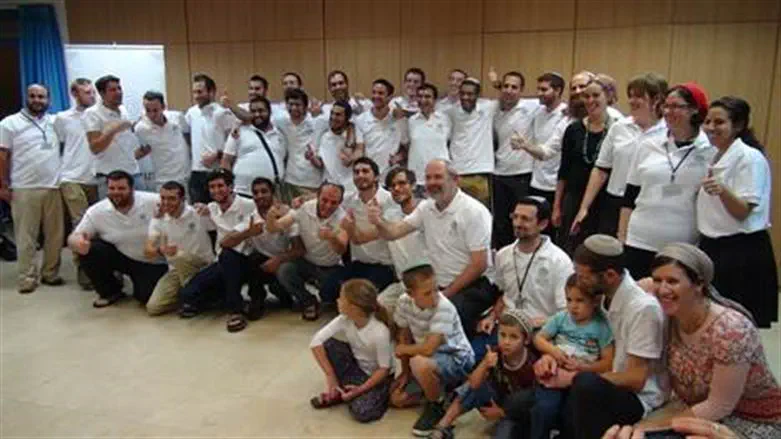
The Gemara in Rosh Hashannah tells us an amazing story about the law of sanctifying the new month:
There once was a disagreement about the time of Rosh Chodesh. Was the moon reborn yet or not. Rabban Gamliel decided it was seen and that a new month has started. Rabbi Yehoshua disagreed. Rabban Gamliel sent a message to him: I decree against you that you must appear before me with your staff and with your money on the day on which Yom Kippur occurs according to your calculation; according to my calculation, that day is the eleventh of Tishrei, the day after Yom Kippur…
Rabbi Akiva found Rabbi Yehoshua distressed that the head of the Great Sanhedrin was forcing him to desecrate the day that he maintained was Yom Kippur. In an attempt to console him, Rabbi Akiva said to Rabbi Yehoshua: I can learn from a verse in the Torah that everything that Rabban Gamliel did in sanctifying the month is done. The verse indicates that whether you have proclaimed them at their proper time or whether you have declared them not at their proper time, I have only these Festivals as established by the representatives of the Jewish people.
Another version of the story says that Rabbi Akiva consoles him differently. Rabbi Akiva said to him: 'My teacher, allow me to say before you one matter that you yourself once taught me: Three times the verses use the term: Them [otam], regarding the Chagim, which can also be read as you [atem], in plural. This comes to teach: You [atem] are authorized to determine the date of the new month, even if you unwittingly establish the New Moon on the wrong day; you, even if you do so intentionally; you, even if you are misled by false witnesses'. In all cases, once the court establishes the day as the New Moon, it is sanctified, and God grants His consent.
After hearing this, Rabbi Yehoshua said to him in these words: Akiva, you have consoled me; you have consoled me.
During the discussion the Gemara reveals to us an amazing thing - the power of the Sanhedrin is so great in sanctifying the month that even if they err in their calculation, and even if they set Rosh Chodesh at the wrong time intentionally (!) their decision is valid. This is a unique and very powerful statement - the power of a court to determine something that ostensibly depends on the natural cycle and celestial bodies.
This law reveals to us a fundamental idea regarding the power of the Sanhedrin and the determination of halakhah; The Torah was given from heaven, it is eternal and absolute. But as soon as it landed on earth - it is not in heaven. Its molding and development are in the hands of humans. It is flexible and subject to change and creativity according to the needs and time - of course within very clear boundaries and rules. The great Chidush in the sanctification of the month is that even in things that seem to depend on natural factors - celestial bodies and the cycle of the year - even there the power of man in shaping the law is stronger than any other.
This principle can be seen in an interesting hypothetical case brought by the Minchat Chinuch - the paradox of sanctification of the month:
A case in which two people who came to the Sanhedrin on the 30th of Av and testified that they had seen the birth of the moon. Based on their testimony, the court decided to declare that day as the first day of Elul, but before they had time to declare it, two other witnesses came to the court to contradict the testimony of the first witnesses or disqualify them. The last two witnesses will turn 13 years old on the first day of Elul, and therefore on this day they will become members of the mitzvah and eligible to testify.
This case places us in a never ending loop - if the first testimony is accepted then the second witnesses will become old enough to testify and can contradict the first testimony but then they are not old enough to testify…
This case is another example of the power of the court, even regarding the abilities to receive the testimony of Bnei Mitzvah - something that ostensibly depends on time alone!
The Torah gives humans the power to shape the halakhah even in this surprising place - the timeline and calendar.
 Matanya Weiss is a former Shaliach in Memphis (2020-21) and currently learning in Yeshivat Har Etzion. comments: matanyaweiss@gmail.com
Matanya Weiss is a former Shaliach in Memphis (2020-21) and currently learning in Yeshivat Har Etzion. comments: matanyaweiss@gmail.com
Torah MiTzion stands in the forefront of the battle for the future of the Jewish people in the Diaspora, offering religious-Zionist Torah scholarship to Jewish communities throughout the world and strengthening the bond between the Jewish people in the Diaspora and in Israel via the study of Torah.